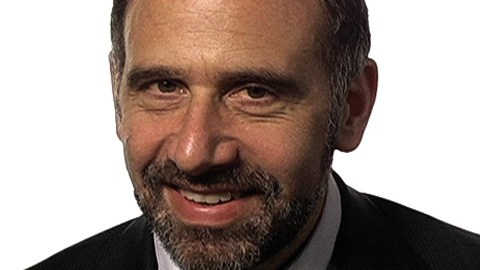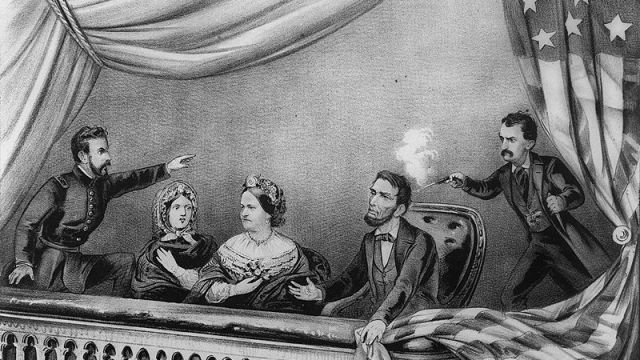Obama Sends Mixed Signals to Wall Street

We asked some of our financial experts – Dean Baker of the Center for Economic and Policy Research, former Forbes.com CEO Jim Spanfeller, and Time economics columnist Justin Fox – about Obama’s speech to Wall Street this afternoon. Reactions ranged from optimistic (Jim Spanfeller expressed confidence that “Wall Street and the economy will continue to improve”) to annoyed (Baker declared, “Obama simply lacks the will and/or the power to clamp down on Wall Street”).
Meanwhile, Justin Fox approved of some of Obama’s language but wondered if it would have any impact, writing “The moment of greatest urgency on these matters has passed. Normalcy is breeding complacency.”
The full letters appear below the jump.
Justin Fox told Big Think in June that booms and busts are an inherent part of America’s financial system. Today, he worries that Obama’s proposed reforms are too complicated and not concrete enough to usher in any real change on Wall Street, writing:
I wasn’t so thrilled with the catchphrase “normalcy cannot lead to complacency.” It made me think of Mr. Normalcy himself, Warren G. Harding. Not the greatest of historical references for Obama. I did really like parts of the speech, though, including this one:
“[I]t is important to note that the very absence of common-sense regulations able to keep up with a fast-paced financial sector is what created the need for that extraordinary intervention. The lack of sensible rules of the road, so often opposed by those who claim to speak for the free market, led to a rescue far more intrusive than anything any of us, Democrat or Republican, progressive or conservative, would have proposed or predicted.”
But will such arguments be enough to put financial reforms back on track? I really can’t tell. This kind of complicated stuff is hard to push through Congress, and the Obama team’s No. 1 legislative priority is clearly health reform. The moment of greatest urgency on these matters has passed. Normalcy is breeding complacency.
-Justin Fox
When Big Think talked to Dean Baker in April, he was worried that Wall Street was in the process of heading back to its unsustainable pre-crash status quo. What we need, he said, is someone to force Wall Street to change. Obama’s speech did nothing to alleviate Baker’s concerns; he writes:
As usual, President Obama gave a beautiful speech. Unfortunately, there does not appear to be much by way of substance behind it. President Obama simply lacks the will and/or the power to clamp down on Wall Street. As a result, nothing has changed from the pre-Lehman days. If anything, with greater concentration and too big to fail now pretty much the official policy, things are worse.
There are many specific reforms that are desperately needed to fix the financial system, such as putting all derivative contract trading on exchanges and reforming the pay structures on Wall Street, but the most fundamental issues have to do with power. Basically, we have an industry that is a parasite on the U.S. economy — it is four times as large relative to the economy as it was 30 years ago. As a result, we are now throwing $250 billion a year in the toilet paying Wall Street’s high rollers to play games with new financial instruments.
This could quickly be brought into check with a modest financial transactions tax. We could easily raise over $100 billion a year with a system of scaled transactions taxes (e.g. 0.25 percent on a stock trade, 0.02 percent on a credit default swap). This would eliminate much of the waste in the financial sector and would raise over $1 trillion over the next decade in tax revenue. This sort of tax has been endorsed by prominent economists and financiers all over the world. Even Larry Summers, the head of President Obama’s National Economic Council supported such a tax. But, this tax is a dead letter in Washington because of the immense power of the financial industry. They will not let Congress tamper with their profits.
The other key issue with power has to do with the failure to punish regulators. We are facing this economic disaster, with 15 million people unemployed, because of a disastrous regulatory failure. Yet, no regulators have lost their job, none have even missed a promotion.
It will always be difficult for a regulator to challenge Goldman Sachs, Citigroup or any other major financial institution. These institutions will run to their friends in the Treasury Department, Congress and elsewhere in government to have a troublesome regulator over-ruled and possibly even fired. As a result, regulators will always be hesitant to challenge powerful financial institutions, even when it is absolutely necessary to maintain financial stability.
On the other hand, if they face no downside risk when they don’t challenge financial institutions, even when it is essential to preserve stability, regulators will take the easy way out and not challenge them. This is extremely basic economics. In short, if we expect our regulators to regulate, we have to fire them when they don’t. Since that isn’t happening, regulation will continue to be a joke.
-Dean Baker
Jim Spanfeller, the former Forbes.com CEO and author of a recent controversial article in Paid Content about charging for ads on the web, was the most optimistic of our experts. However, he brought up his continuing concern with executive compensation, a subject he broke down for Big Think during his interview. He writes:
I give Obama much credit for trying to address some significant structural issues in our financial system with these reforms. It strikes me that if executive compensation was more tightly tied to shareholder value a lot of our past issues could be avoided. I’m not sure what impact it will have to help the economy near-term. Health Care clearly has to be his top priority given the flag in the sand that the President has set around it. But these are sound ideas, and I’m optimistic that Wall Street and the economy will continue to improve.
-Jim Spanfeller





